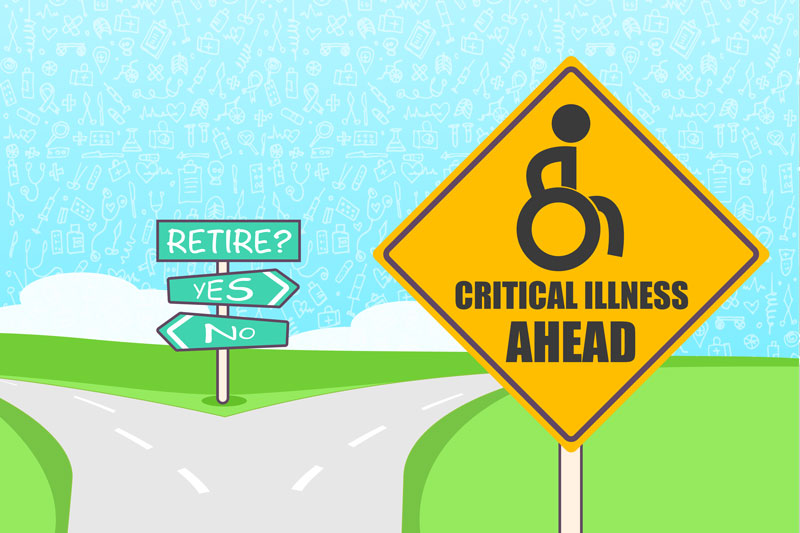|
Illnesses and health conditions are the reasons many seniors take early retirement. Whether they are physical, like MS, or mentally crippling conditions like depression or Alzheimer’s, illnesses that manifest during old age can have a big impact on quality of life. For many, choosing to retire simply isn’t a financial option, but their health demands that they take leave from work. Let’s look at some things seniors should think about when considering to retire due to an illness.
Consider Options Whether suddenly impacted by an illness, or experiencing onset symptoms of an illness or medical condition over time, seniors forced out of the workforce by illness need options. Regardless of the situation, employers are legally required to make reasonable adjustments so that their employees with illnesses are accommodated. Further, FMLA provides those with certain illnesses the right to time off work without penalty. Many folks worry about whether or not they can practically stop working because of an illness. What’s important to remember is that there are many sources of retirement income that pad out a retiree’s retirement fund. It’s not all decided by the amount of retirement benefit you’ve built up in your retirement fund, but also considers Social Security Benefits as well as Medicaid and Medicare benefits as well. Still, there are a few other options to consider. Part Time Options Some choose to work a more flexible schedule—or even part-time—if possible. Retiring completely isn’t always feasible, especially if it’s because of a sudden, unplanned illness. Many folks develop a retirement plan without much room for deviations. In these cases, even a few years can make quite a difference in the retirement plan when it comes to building finances. Part-time employments can give those with an illness the opportunity to continue working and earning their respective retirement benefits while also allowing for necessary time off to recoup. If the illness allows, consider adopting a more flexible schedule or only taking part-time responsibilities. It’s important to keep in mind that your physical and mental health are the most important. Whether you’re able to comfortably work through your illness or not, it’s good practice to set limits and keep yourself at a practical work level. Sometimes part-time work is doable, but it’s not always practical. Consider your illness, the symptoms you experience, your finances, and whether or not continued work will have a negative impact on your overall health and illness. Of course, instead of basing your decision solely on the financial implications, consider all aspects of your wellness. Voluntary Redundancy In some cases, taking voluntary redundancy can be the right option for your quality of life. Voluntary redundancy is a financial incentive offered by an organization to current employees to voluntarily resign from their position. They are most common among times of company restructuring or downsizing; however, they may also be presented to seniors nearing retirement, especially those who are suffering with an illness and the work becomes difficult to perform. A clear advantage of taking redundancy is that it would come with redundancy pay, which might make the decision to retire early easier to make. Consider Finances Whether an illness is present or not, most working seniors are already thinking about retirement. In most cases, seniors must wait until they are at least 62 before they can start claiming their pension—but those retiring due to a medical illness or condition may be able to access it earlier. One downside to retiring and claiming your pension early is that it won’t have as much time to grow as it would if you worked longer. However, when health is at risk, most don’t have much of an option. Every pension has its own details and definitions, so it’s important that you work out exactly what your retirement funds will look like. Start this process by finding out what your pension provider’s rules are surrounding ill-health and taking your pension early. Find out how much the pension is worth and how much income your pension sum can buy. In many cases, ill-health allows the pension holder to get an increased income—known as an enhanced income. After you’ve reviewed your financial situation, it’s a good practice to create a retirement budget in order to make sure that your retirement funds and income will be sufficient in covering all costs. Of course, in the case of illness even the support of a pension and partial income might not be enough to cover expenses. Many seniors might not be aware that they have options available for them to increase their retirement funds. One option is selling a life insurance policy through a life settlement. This article was written by: Leo LaGrotte I would be happy to answer any questions you may have about this or any other life settlement topic. I can be reached at 888-849-0887 or [email protected]. |

